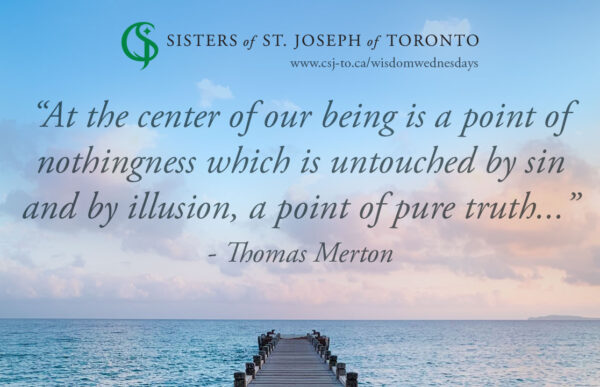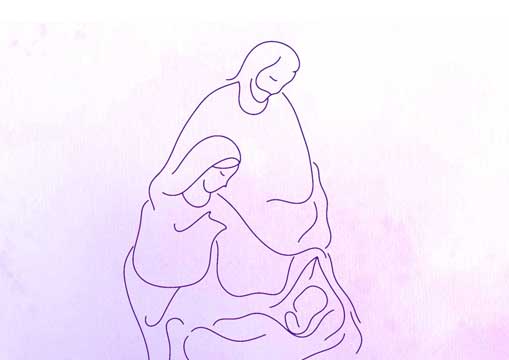In next Sunday’s Gospel reading, Jesus invites all those who will listen to him to love those who seem unappealing or even distasteful. This includes those who have harmed us and those that we love and care about. Furthermore, he tells us, “Do not judge and you will not be judged.”
We must ask ourselves, “How can I possibly do this?”

Of course, we can always tell ourselves that we do not know what is in the other’s heart or motivation. We can try another rationalization by saying that we do not know what a person has suffered that led to such bad choices or heinous acts.
In his book Conjectures of a Guilty Bystander, Thomas Merton has another idea. He tells us:
“At the center of our being is a point of nothingness which is untouched by sin and by illusion, a point of pure truth, a point or spark which belongs entirely to God, which is never at our disposal, from which God disposes of our lives, which is inaccessible to the fantasies of our own mind or the brutalities of our own will.
“This little point of nothingness and of absolute poverty is the pure glory of God in us. It is, so to speak, His name written in us, as our poverty, as our indigence, as our dependence, as our sonship. It is like a pure diamond, blazing with the invisible light of heaven.
“It is in everybody, and if we could see it we would see these billions of points of light coming together in the face and blaze of a sun that would make all the darkness and cruelty of life vanish completely…
“I have no program for this seeing. It is only given. But the gate of heaven is everywhere.”
And so I say:
Lord as I read this Gospel, I ask for the grace to let go of the rationalizations and rules that I try to live by because it is only with your help that I will find you in each person I meet and recognize you in all those that others and our society condemn.
Help me to find the spark of your life in all of your creation.
This alone will give me the ability to live your words.
Sister Rosemary Fry



